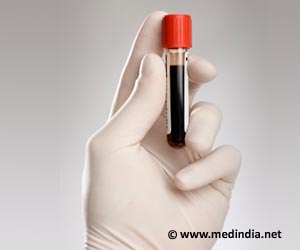A team of scientists have found that the loss of a protein called p62 in the cells and tissue surrounding a tumor can enhance the growth and progression of tumors.

The findings, published July 3 in Cancer Cell, contribute to the increasing acknowledgement that the cells and tissue surrounding a tumor—the stroma—are an integral part of cancer initiation, growth, and expansion.
"Our study reveals a precise mechanism that stromal cells use to encourage the tumorigenesis of epithelial cancer cells," said Jorge Moscat, Ph.D., director of the Cell Death and Survival Networks Program at Sanford-Burnham. "We have shown that in the stroma, p62 acts as an anti-inflammatory tumor suppressor, controlling the inflammatory environment and the signals that promote cancer. In the absence of p62, tumors grow larger and are more inclined to metastasize."
p62 location influences tumor growth
Previously, Moscat and colleagues demonstrated that p62 activation in prostate and lung cancer epithelial cells had tumor-promoting effects. Cancers of the epithelial cells are called carcinomas, and about 85 percent of all cancers are carcinomas.
In the current study, his team studied the effects of p62 in the tissue adjacent to the tumor, and found it had the reverse effects there.
"This potentially means that therapeutic strategies aimed at depleting an organism of p62 and inhibiting mTOR in the cells that surround the tumor may actually benefit the tumor, because tumor-suppressive activities would be inactivated. It also may explain why therapies aimed at blocking mTOR are showing limited clinical efficacy," added Diaz-Meco.
The initial hint that p62 in the stroma influences tumor growth came by analyzing more than 200 human prostate tumors with Gleason scores ranging from 2 to 10. Gleason scores are a numerical assignment given to prostate tumors based on pathology, with the highest scores (10 maximum) indicating that the cancer is very likely to spread. The research team found that p62 levels in the stroma were significantly lower in samples with the highest Gleason scores, suggesting a protective role for p62.
To understand how p62 works, the research team introduced prostate cancer cells and monitored tumor formation in normal mice, and mice genetically engineered to lack p62. The mice without p62, called p62 knockout (KO) mice, had larger prostate tumors compared to normal mice, supporting the notion that the absence of p62 in an organism promotes cancer growth.
The researchers went on to show that p62 KO mice had increased levels of IL-6, a pro-inflammatory cytokine (a signaling molecule) that enhances tumor cell proliferation and inhibits cell death. And, the genetic events that linked p62 depletion to increased levels of IL-6 in mice were mirrored in humans.
"Our observations support a more comprehensive approach to treating cancer, one that is based on our understanding of the communications between a tumor and its environment," added Moscat. "Conceivably, treatments that inhibit tumor-promoting inflammatory signals combined with tumor-specific targets may improve cancer outcomes."
Source-Eurekalert
 MEDINDIA
MEDINDIA




 Email
Email




